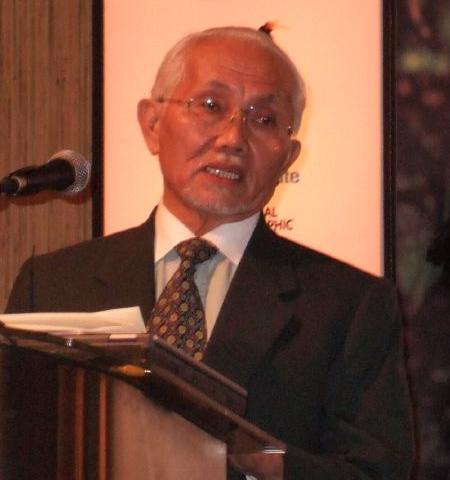
ALL eyes are now on the ruling Barisan Nasional (BN) to see whether a general election will be called following the Sarawak elections. But although BN retained its two-thirds majority in Sarawak, it suffered a decline in the popular vote. Meanwhile, political rivals DAP and Parti Keadilan Rakyat (PKR) increased their seats from six and one to 12 and three respectively.
The Nut Graph asks political scientist Wong Chin Huat about the implications of the Sarawak election results in the latest installment of his column Uncommon Sense.
TNG: Despite the BN’s Sarawak win, it still suffered a decline in the popular vote and lost several seats. How significant is this shift for Sarawak politics?
The shift is much larger than what meets the eye. The BN suffered declining support in 53 out of the 71 seats, even though the swings were not big enough to hand the opposition victory in many of those seats.
One may argue a two-party competition format is emerging in Sarawak now. The BN’s hegemony is now challenged by the DAP and PKR in urban and rural constituencies respectively.
In Chinese-dominated urban centres, the rising DAP is beating the ailing SUPP hands down. In the rural and inland Dayak belt, the BN’s four parties – PBB, PRS, SPDP and SUPP – are still dominating, but their dominance is being eroded by PKR’s successful breakthrough in Ba’kelalan (Orang Ulu) and Krian (Iban). The party was expected to pick up two to three Bidayuh seats, but the swings were not strong enough to deliver even one.
It is only in Melanau-Malay areas where PBB still holds the ground. Perhaps alarmed by the fear of losing a Muslim chief minister, PKR and PAS failed to pick up any of the 29 seats, even losing some of the marginal ones like Saribas with a greater margin.
Will Chief Minister Tan Sri Abdul Taib Mahmud be under more pressure to step down sooner rather than later, with the recent results?
Since PBB swept all 35 seats it contested, Taib will stay on for a while. (Prime Minister Datuk Seri) Najib Razak would like to get him to retire for the next general elections so that he can’t be used by the opposition to draw protest votes, but Taib will not give up easily.

The fact that Taib chose to get himself sworn in as chief minister late at night despite the BN winning a two-thirds majority speaks volumes of his distrust of Kuala Lumpur. Some factions in Umno may be happy to court Malay [Malaysians] in PBB to force Taib’s retirement or even bring in Umno, but Taib would put up a fight unless he is given good compensation and assurance of his continued dominance.
Before the Sarawak elections, the BN seemed to be picking up momentum towards an early general election, while the Pakatan Rakyat (PR), in particular PKR, has had to deal with in-fighting, defections, and recently, a purported sex scandal. How will the Sarawak election results affect the BN’s momentum and the PR’s preparedness for the next general election?
The Sarawak elections are a game changer, but less than what many in the opposition and civil society were hoping for. Sarawak is clearly no longer the fixed deposit of the BN. If Sarawakians vote in the next federal election as they did on 16 April, the BN would lose nine more seats in Sarawak. And Sarawak is likely to have sent a shock wave to neighbouring Sabah too. While not as notorious as Taib, Sabah Chief Minister (Datuk Seri) Musa Aman has his fair share of corruption and cronyism allegations.

Worse still, the majority of ethnic Chinese voters seem set against the BN. They don’t sell their votes for whatever goodies, banquets or concerts. The nightmare for the MCA and Gerakan is that the Sarawak Chinese don’t even care if they are not represented in the state government. Some Sibu Chinese voters expressed their regret at not getting Wong Soon Koh (an incumbent minister and SUPP’s only winner in Sibu) toppled.
The most important lesson the BN must learn is that urban voters will buy neither bribes nor threats. They know well that development is their right and that the government cannot afford to punish the urban centres. Hence, attempts to win their votes by night-market bargains a la “you help me, I help you” backfire.
They also know that the BN cannot afford ethnic violence. To win them over, the BN has to compete on policy and competence. Forget about the Government Transformation Programme. This is the “Politics Transformation Programme” Najib needs.
Many Chinese Malaysians reportedly voted against the BN in these elections, assisting the DAP to capture 12 out of the 15 seats they contested. What prompted this swing?
First, the swing is perhaps more urban than Chinese. Two of the DAP’s 12 seats, Kidurung and Maradong, are Iban-majority. I would attribute the swing to growing independence and consciousness of voters, which is actually spreading beyond urban centres to semi-urban seats, as in the cases of Batu Kawah, Dudong and Piassau, which the DAP also won.
Having said that, one must also recognise such swings did not get through to Melanau-Malay dominated sub-urban seats like Satok in Kuching or Nangka in Sibu. The Melanau-Malay community has shown a markedly different trend from all other ethnic communities in Sarawak in this election. The odd one out was therefore not the Chinese.
The largely similar trend will likely be observed in Sabah and the Peninsula in the next general elections. Bad news for the BN: urban Malays in the peninsula are likely less susceptible to the discourse of ethnic fear than the Melanau-Malay in Sarawak. Utusan Malaysia is increasingly a rural newspaper surviving on government support that many urban Malays feel shameful to be associated with.
What impact, if any, will the increased Chinese Malaysian support for the PR have on politics in Peninsular Malaysia? Already, Utusan Malaysia has called on the BN to “ignore” the Chinese Malaysian vote. Will increased Chinese Malaysian support make it easier to brand the PR as a “Chinese-dominated” coalition?
Quite paradoxically, if Chinese Malaysian support for the PR increases, it is likely to help carry many PKR and PAS Malay Malaysian candidates in marginal mixed seats and produce a more ethnically balanced PR parliamentary delegation.
However, if Chinese Malaysian support for the PR halts or decreases slightly, either because of PAS’s Islamisation moves or the MCA’s partial success in spreading the fear of “Chinese in opposition”, the PR may become really Chinese-dominated. The DAP with its strong support base will still win most of the Chinese-dominated seats even with less Chinese support, but PKR and PAS will likely lose most marginal seats. That would make a stronger perception of “Malays in Government, Chinese in opposition”, which Utusan Malaysia loves most.
Last but not least, how free and fair were these elections?
The elections were neither free nor fair. Polling irregularities aside, there was no level playing field at all.
The Election Commission (EC) completely disregarded Sarawak’s geographical and demographical conditions in at least three aspects.

The EC ignored calls to grant postal voting rights to the many Sarawakians who are forced to find work outside Sarawak. Among overseas Malaysians, only students and diplomats can vote. This explains the ridiculous number of 34 overseas postal voters in the Sarawak elections. Secondly, despite Sarawak’s geographical spread and infrastructural backwardness, the EC set a campaign period of only 10 days, two days more than the bare minimum legally required. Thirdly, the EC refused to call on RTM to provide free airtime and televised debate, despite its constitutional power under Article 115(2) to do so.
Vote buying was also a major issue, both in the form of cash payments for individuals and government development funding for the communities.
Longhouse heads were approached, whom most community members would follow. A Tamin head testified to being offered RM10,000 to vote BN.
Equally disturbing is collective vote-buying using government funds where communities are promised discriminatory treatments based on partisanship, or even threatened that money would be withheld if support is not forthcoming. By right, no major decision should be made by the caretaker government once the legislature is dissolved. We need an explicit law to criminalise abuse of government apparatus, even though you can surely charge them now under the Anti-Corruption Act 1997.
There were also polling irregularities, which may amount to outright rigging in some cases. One of the most common issues was that after counting, polling agents were not given a copy of a signed Form 14, which states the vote totals. This could allow for ballot stuffing later as the returning officer can just amend the vote totals accordingly.
Unless Malaysians step up the pressure, these major concerns will be replayed in the general election for the entire rural Malaysia. ![]()
Wong Chin Huat is a political scientist by training and a journalism lecturer by trade. If readers have questions and issues they would like Wong to respond to, they are welcome to e-mail editor@thenutgraph.com for our consideration.
Read previous Uncommon Sense columns
[related-posts]


Leithaisor says
Should the word “residing officer” in the second last paragraph be “returning officer”?
[Editor: Thanks for pointing it out. It is now amended as of 27 April 2011, 2pm.]
a coin will forever has two sides says
I wonder what happened to the Indian Malaysians in this article. Maybe they are not significant at all. What a waste.
pk says
” sub-urban seats like Satok in Kuching”.
What makes Satok sub-urban rather than just plain urban? It is in the heart of Kuching, covering a bit of Kuching South bordering Sg Sarawak and stretching over Satok Bridge into that bit of Kuching North bordering Sg Sarawak.
No, Satok is the example par excellence of gerrymandering and malapportionment. A seat of less than 12,000, it borders Padungan in Kuching, with about 24,000. A tiny seat, it shares a similar number of voters as the interior seat of Telang Usan, a seat the size of Selangor.